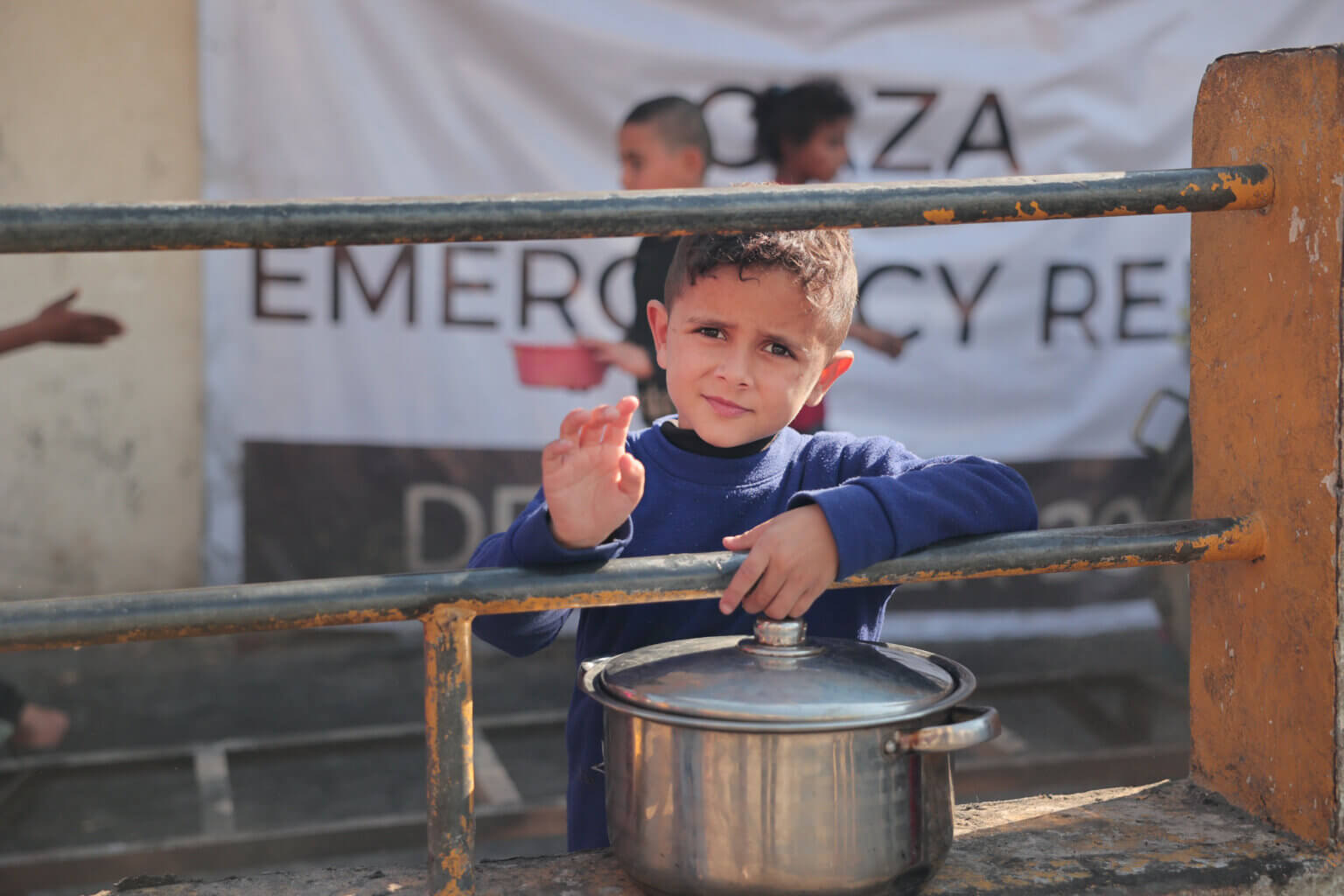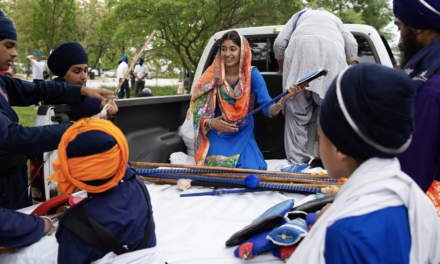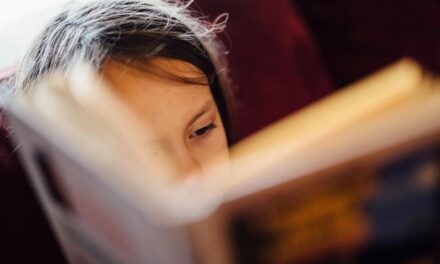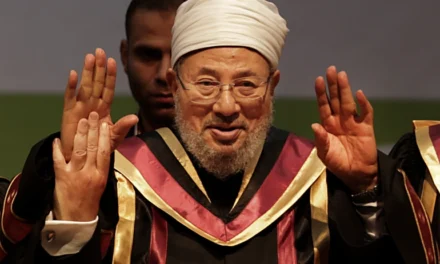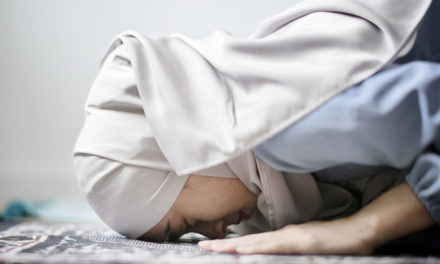PALESTINIANS CHILD IN GATHER WITH A POT, WAITING TO STAND IN LINE TO RECEIVE FOOD AT A DONATION POINT PROVIDED BY A CHARITABLE ORGANIZATION IN RAFAH IN THE SOUTHERN GAZA STRIP, DECEMBER 19, 2023. (PHOTO: BASHAR TALEB/APA IMAGES)
Recently, a powerful video began making the rounds on the internet. Showing up on my feed was a short clip of a Palestinian man from New Jersey speaking from Gaza. His deep frustration came through with stinging clarity as he condemned the U.S. government while denouncing the cruel irony that his own taxes are contributing to the bombing of his neighborhood and killing of his family. The video stuck with me. I began to think about what it must feel like to know that it is your own government that is enabling war crimes against your people. What must it feel like to know that the rights of your people take a backseat to geopolitical interests?
Living in a region that has the largest concentration of Palestinians in the country, I decided to reach out to two local Palestinians and ask them to share their stories about what it feels like to be Palestinian in this moment. Pushing through the competing narratives and propaganda, I wanted to center the voices of Palestinian-Americans, whose own relatives are dehumanized as they are relegated to mere collateral damage.
Open wounds
Rami Bader is a 34-year-old pharmacist from Clifton. Born in Paterson, Rami has served the needs of the community for over 10 years.
I met Rami for coffee at Mokkafe, a new Palestinian/Yemeni coffee shop on Palestine Way in South Paterson. We started our conversation by sharing stories about our upbringing, realizing we had much in common, both being first-generation Americans born in Paterson. However, that was about the extent of our similarities. Rami is the only one in his family born in the United States; his other four brothers were each born in different countries across the Middle East. This is not atypical, as it is quite difficult for Palestinians to settle in surrounding regions, given xenophobia and geopolitics. Yet even if they were given the opportunity to resettle, many Palestinians would hesitate because it would mean leaving behind their Palestinian identity and any hopes of returning to the homes they were expelled from in 1948.
While all kinds of relocation present their own hardships, Rami’s family history was especially difficult to listen to. His parents were forced out of their village of Karatiyya during the Nakba — “catastrophe” in Arabic. The Giv’ati Brigade destroyed all the homes in the village and ethnically cleansed its entire population. Recounting the memories of this period from his father, “It feels like he just told me this yesterday: He was forced out of his house naked, forced to flee and placed in the Jabalya camp in Gaza…as for my mother, it was always difficult to get her to share information about her past…I could always see the pain in her eyes as she remained silent whenever I asked.”
Jabalya is Gaza’s largest refugee camp, with 116,011 registered Palestinians living there prior to its recent bombing by Israel. The Jabalya refugee camp was bombed by Israeli Occupation Forces on October 31, the latest numbers indicating that nearly 200 people seeking refugee there were killed after the direct hit. The JDAM missile that struck the camp is manufactured by Boeing, whose stock rose by around 15% over the last month. The director of the New York office of the United Nations High Commissioner of Human Rights resigned the day after, calling it “a textbook case of genocide.”
The village of Karatiyya no longer appears on maps. Since the founding of Israel and the expulsion of over 700,000 Palestinians from their ancestral lands, including Rami’s parents, villages like Karatiyya have been effectively erased as new Israeli settlements replaced them. The Nakba was sanctioned by UN resolution 181, creating the partition of historic Palestine, which has since dwindled in size through numerous Israeli invasions and settlements.
October 7 was different and yet more of the same. “Palestine experiences this sort of violence every day, at least since 1967. We live in terror in Gaza and the West Bank.” Asking about his response to the lawsuit, he says, “I feel betrayed by my country [the US]. I pay my taxes, so the government owes me civility and peace in that region. They should at least get Americans out of the region if they really cared. It sucks, because I am technically funding the killing of my own people…I’m complicit in this genocide.”
Despite the unique tragedy and long catastrophe in Palestine, I had always been inspired by the resilience of the Palestinian people. Rami shared some reflections on what it meant to be Palestinian: “My father always made sure to tell me about where I came from and our history. I [quickly learned that] being Palestinian is not easy…you have to learn to ‘walk’ early on [and mature], as one is forced to contain the pain they feel.” Curious to know about how he was able to balance these two seemingly contrasting realities, that of an American upbringing and another of displacement, expulsion, and colonial violence, I barely formulated my question when Rami responded with a singular yet powerful word: “hope.”
“I assumed that things would get better,” he explained. “I believed there was no way that this [catastrophe] could go on for much longer. I had faith in the Palestinian people that they would figure things out and get help. I always thought things would work out and everyone would live together in one state.”
Finally, I ended our conversation by asking where, in times of despair, he draws this hope from. Rami, in another round of irony, found it through the despair he saw all around. “In the videos of the fathers holding their injured kids…[seemingly] still having hope…I do not understand how. I saw a video of kids playing in the rain, a young amputee smiling into the camera. I can’t lose out hope on people who refuse to let go of hope.”
Like Rami, I similarly believed that things would work out for Palestinians. Educated in the public school system in this country, we were always taught that the U.S. was the beacon and defender of human rights. However, as Marc Lamont Hill and Mitchell Plitnick’s book Except for Palestine outlines, Palestine is an exception even for those who hold progressive values: “While these communities generally endorse ideologies, policies, practices, and protests that reflect their worldview, they often become notably silent about the plight of Palestinians. When the topic turns to Palestine, the same people who consistently advocate for freedom and justice fail to live up to their professed ideals.”
More than just land
Mohammad Al-Jabawee moved to Clifton from Brooklyn in 2004. His parents are from a town called Turmus Ayya near Ramallah in the West Bank. Although having only visited Palestine once, Mohammad’s early childhood memories from the time he spent in Turmus Ayya have remained with him to this day.
While counting on its own government, the Palestinian Authority, the West Bank remains a quasi-sovereign region. Hundreds of growing illegal Israeli settlements have carved out the West Bank. Only 18% of the territory in the West Bank, one of the two administrative departments of Palestine (the other being Gaza), remains exclusively under the control of the Palestinian Authority; 22% is under mixed control (both Palestinian and Israeli), and nearly two-thirds fall under the exclusive administration of Israel.
Even as a child, Mohammad was well aware of what occupation was: “[Occupation] was never really explained to me, we are just born into it.” Recalled Mohammad when I asked how he viewed occupation as a child. “We saw it everywhere we went. [I remember] Shiloh, a settlement located on a hill that overlooked my family’s home; it was all lit up, gated off. Every so often, soldiers would come down with their big jeeps through our neighborhood.”
Holding onto contrasting realities, that justice is always “supposed” to prevail while at the same time having your family simply being expected to suffer can lead anyone to a breaking point, especially a young child. “I recall this one time in my middle school classroom. I was quite upset at [the latest round of repression against Palestinians], and I asked my teacher, ‘how can we stand up against tanks, rockets, fighter jets, when we only have rocks? We are being murdered.’ I then literally broke down in tears in front of the entire class while trying to explain what I was feeling…I have felt pretty helpless about the situation for most of my life,” Mohammad recalled somberly.
Earlier this year, a new wave of settler violence swept through Turmus Ayya, leaving one Palestinian dead and numerous cars and homes torched. Since then, settler violence in the West Bank has only gotten worse. As of this writing, nearly 250 Palestinians have been killed in the West Bank since October 7, marking one of the deadliest periods in the region since the Intifada.
“It was pretty hard living here (the U.S.) and seeing the violence there, unable to do anything about it…whenever anyone found out I was Palestinian, they would say ‘oh, I’m sorry about what’s going on.’ While I appreciated that, it felt like [people] spoke as if it was some [sort of phenomenon], but [I felt that] this was something that could definitely change and did not have to be this way.”
Israel imposes a widespread system of control, surveillance, and policing against Palestinians that has been described as a system of apartheid by numerous organizations, including B’tselem, an Israeli human rights organization. Amnesty International, the renowned human rights organization, in its report on apartheid in the occupied territories of the West Bank, described it in this way: “This closure system includes a web of Israeli military checkpoints, blockades, blocked roads, gates and the winding fence/wall. In addition to curtailing movement between Palestinian communities, it separates Palestinians from their agricultural land, and hampers Palestinians’ access to basic services, such as education and healthcare, and to work.”
Seeing the global response in support of Palestinians has touched Mohammed. Whereas the “Palestinian Question” was in the past an issue relegated to social justice spaces and academic discussions, it has now been taken up by diverse movements around the globe, from Jewish organizations like Jewish Voice for Peace and If Not Now, to Black Lives Matter and Environmental justice movements around the globe.
“I am happy to see that there is more than one source of information out there…that there are people on the ground living under occupation that are able to get their pictures out and tell people what is really going on…We have our voice now.”
Rami and Mohammad present a vivid picture of the pain some people often experience without the outside world ever knowing. Hearing their stories puts the conflict into perspective while contextualizing the events of October 7 as part of a much longer history of Palestinian suffering. In the Center for Constitutional Rights’ complaint, they trace the history of violence in Palestine to at least the mid-20th century, writing, “Between 1947-1949, carrying out sentiments reflected in future Prime Minister David Ben Gurion’s 1937 letter to his son that ‘we must expel the Arabs and take their places,’ Zionist militias forced the displacement of 85% of the Palestinian population, destroyed 531 villages across Palestine, killed approximately 15,000 Palestinians and violently forced the expulsion of 750,000 Palestinians from their ancestral homes, rendering them refugees.”
Recalling his turn from despair to hope, Mohammad recounted how he shook off the pessimism he once held, believing that it would be better off to just let Israel take everything as long as there could be peace. But in words that capture the inspirational resilience of the Palestinian people, he states, “You know what, I can’t give up on [my homeland]. This [struggle] is more than just about land.”
